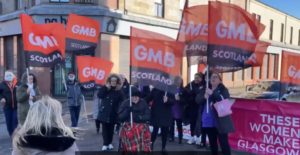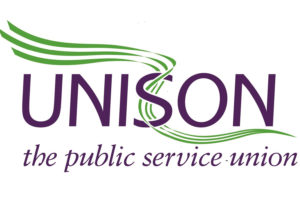Statement of the Executive Bureau of the Fourth International
1. Before dawn on 24 February 2022 the Russian army began its invasion of Ukraine, bombing the interior of the country and crossing the northern, eastern and southern borders of the country, heading for the capital Kiev. This aggression has already resulted in many deaths, both civilian and military. The Ukrainian army and population are defending themselves, several cities are holding out against the aggressor. Hundreds of thousands of Ukrainians have gone into exile, but the resistance continues. The Ukrainan people are resisting, with and without arms.
The Kremlin’s recognition three days earlier of the “independence” of the so-called “people’s republics” of Donetsk and Lugansk and the official entry of the Russian army into their territory was only the prelude to the invasion aimed at the total submission of the neighbouring country.
It is a military invasion of the territory of a former oppressed nation by a capitalist oligarchic, autocratic and imperialist regime whose aim is the reconstruction of the Russian empire.
2. Putin has made no secret of his Great Russian nationalism and since 2014 he has taken concrete steps to attack Ukraine’s sovereignty. His chauvinistic pseudo-historical narrative, blaming the October 1917 Revolution for having constituted “three distinct Slavic peoples: Russian, Ukrainian and Belorussian, instead of the great Russian nation” is not a recent invention.
The invasion of Ukraine follows a Great Russian chauvinist and imperialist policy that began in different contexts and phases since the break-up of the USSR: from the use of an “energy war” (playing on prices and alternative pipelines), up to the instrumentalization of national minority conflicts such as in Moldova (with the formation of the “Republic of Transnistria” with the support of the Russian army in 1990-91) and in Georgia (with the formation of the “Republic of Abkhazia” in 1992), and later the war with Georgia for control of South Ossetia (2008); but also direct oppressive wars like the war of occupation of Chechnya (1994-1996 and 1999-2009). Each time it is a question of preserving the interests of the Kremlin or seizing territory. But globally, the Putin decades (2000s) corresponded to the (re)building of a strong state (controlling its oligarchs) modernizing its military apparatus, establishing a Euroasiatic economic union – with its military dimensions. A new phase started in 2014 with the Ukrainian crisis and the fall of Yanukovitch (described as a “fascist coup” under NATO’s umbrella) followed by the annexation of Crimea and establishment of separatist “republics” in Ukraine’s Donbas controlled by pro-Russian mercenaries. The military support for Lukashenko in Belarus against the popular uprising in 2020 and the military intervention (through the OTCS – Organization of the Treaty for Collective Security under Russian hegemony) to “normalize” Kazakhstan in January this year made Putin feel stronger in the context of US defeat in Afghanistan and open divisions within NATO’s members on energy (gas pipeline) issues.
Ukraine is an independent country which has preserved a regime of formal democracy. Russia has an authoritarian, repressive parliamentary system with far-right members in the Duma. In Ukraine far-right and fascist forces were very visibly present during the Maidan protests in 2014. The Russian invasion risks strengthening existing far right forces in both Russia and Ukraine. Leading figures of far-right and neo-fascist forces internationally openly support Putin.
The invasion of Ukraine is clearly aimed at imposing a puppet regime, subservient to the Kremlin and Vladimir Putin.
3. Putin’s propaganda tried to justify the aggression by saying that NATO’s expansion to the east would endanger Russia’s existence. NATO (which we opposed from its foundation) is a tool for US imperialism and its allies, initially built against Soviet Union and Communist China. Logically it should have been dissolved with the dissolution of the Warsaw Pact in July 1991, but successive US governments have not only kept it going, but they have also continued to expand it. We reject the competitive logic of capitalist power-states leading to the accumulation of ever more powerful weapons. This is what motivates the opposition to NATO of large parts of the population in the world – and this is not Putin’s preoccupation! However, in some countries, which had been colonized by tsarism or subjugated by the USSR, joining NATO was supported by their populations in the hope that it would protect their independence. We stand instead for the eradication of inequalities, and the necessary social, environmental and democratic development as the means to defend peace.
The fight against the extension of NATO to the East passes today through the uncompromising defence of the national and democratic rights of the peoples threatened by Russian imperialism.
We demand the dissolution of NATO, however this is not the question posed by the attempted annexation of Ukraine by Russian imperialism, which denies the very existence of this nation – Putin claims that it is a pure invention of Lenin and the Bolsheviks. US imperialism is only taking advantage of the headlong rush of the new Kremlin tsar.
We support the right to self-determination of the Ukrainian people and the protection of the rights of the country’s national minorities. Neither Russia nor NATO will defend these rights. We demand the dismantling of all military bases outside their home countries, the liquidation of the US-led NATO and the Russian-led CSTO. The threat of the use of nuclear weapons must be firmly rejected at every level.
At a time when the absolute urgency at the global level should be the fight against accelerated climate change, the development of military adventures and ever more sophisticated weapons systems by the imperialists shows the need for the peoples to dismiss their irresponsible leaders and change the functioning of society: against the generalized competition that capitalism carries, let us impose the logic of solidarity and peace!
4. Whereas in 1968, when Czechoslovakia was invaded, the courageous Russian opponents of the invasion were counted on the fingers of one hand, on the same day that Ukraine was invaded, thousands of people took to the streets of some 50 Russian cities, braving the authorities to protest against Vladimir Putin’s attack on Ukraine. “No to war!” the demonstrators, mostly young people, chanted in the afternoon and early evening in the streets and central squares of Moscow, St. Petersburg, Novosibirsk, Yekaterinburg, Krasnodar and Murmansk.
In 2014, there was widespread support for the annexation of Crimea among the Russian population, today there is contestation even within the establishment, this could lead to Putin’s downfall.
One hundred and seventy Russian journalists and foreign policy experts have written an open letter condemning the Russian Federation’s military operation in Ukraine. “War has never been and will never be a method of conflict resolution and there is no justification for it,” they wrote.
Since the first day of the protests, the regime has made thousands of arrests and the police has brutalized the arrested protesters. It has also ordered the limitation of access to social networks, accused of “violating human rights and fundamental freedoms as well as the rights and freedoms of Russian citizens”!
Despite the repression, an anti-war movement is continuing to develop in Russia! It merits the solidarity of the world labour movement.
5. In the face of the war in Ukraine, it is the responsibility of all activists in the labour and social movements, of those who have mobilized against the war, to support the resistance of the oppressed Ukrainian nation. To stop this war, Putin’s regime must be sanctioned and Ukraine supported in resisting the aggression.
• Immediate withdrawal of Russian armed forces from all Ukrainian territory, including areas occupied since 2014.
• Solidarity and support for the armed and unarmed resistance of the Ukrainian people. Delivery of weapons on the request of the Ukrainian people to fight the Russian invasion of their territory. This is basic solidarity with the victims of aggression by a much more powerful opponent.
• Support to all forms of self-organization for mutual aid and resistance of the Ukrainian population.
• Support for sanctions against Russia, as called for by the Ukrainian resistance, that limit Putin’s ability to continue the ongoing invasion and his warmongering policy in general. Rejection of any sanctions that hit the Russian people more than the government and its oligarchs.
• Open the borders and welcome the populations who have to flee the war by providing the practical short and longer-term aid necessary, especially taking into account the fact that the vast majority are women and children.
• Cancellation of the Ukrainian debt, direct humanitarian aid to civil, trade union and popular organizations in Ukraine!
Internationalist solidarity
We affirm our full solidarity with those who are mobilizing against the war in Russia and those who are fighting to defend the independence of Ukraine.
The interests of the peoples, their right to peace and security are not defended by US imperialism or NATO or by Russian and Chinese imperialism. These extremely serious events remind us more than ever of the need to build an internationalist mobilization to give the peoples a voice different from that of the states, and in solidarity with the Ukrainian people against all the policies that attack and oppress them. Governments will not initiate this march towards peace. We must organize it ourselves.
• No to the repression of the anti-war movement in Russia. Build active and visible solidarity with this movement. Call on Russian soldiers to refuse to participate in the invasion and organise solidarity with them, including political asylum if they request it.
• Support the progressive forces fighting for democracy and social justice in Ukraine. Build all the links possible to develop a dialogue with them on the way forward to a just peace.
• For international solidarity with our own social camp! Build links between working peoples’ and popular movements fighting for democracy and social justice in Russia, Ukraine and other countries in the region as well as internationally.
• Only the international working class, fighting together with all oppressed and exploited people, for peace and against imperialism, capitalism and war, can create a better world.
1 March 2022
Republished from https://fourth.international/en/566/europe/426
Photo: Copyright: Garry Knight from London, England, CC0, via Wikimedia Commons.

